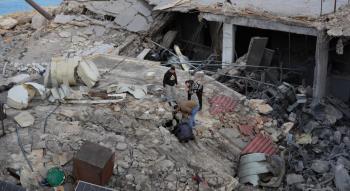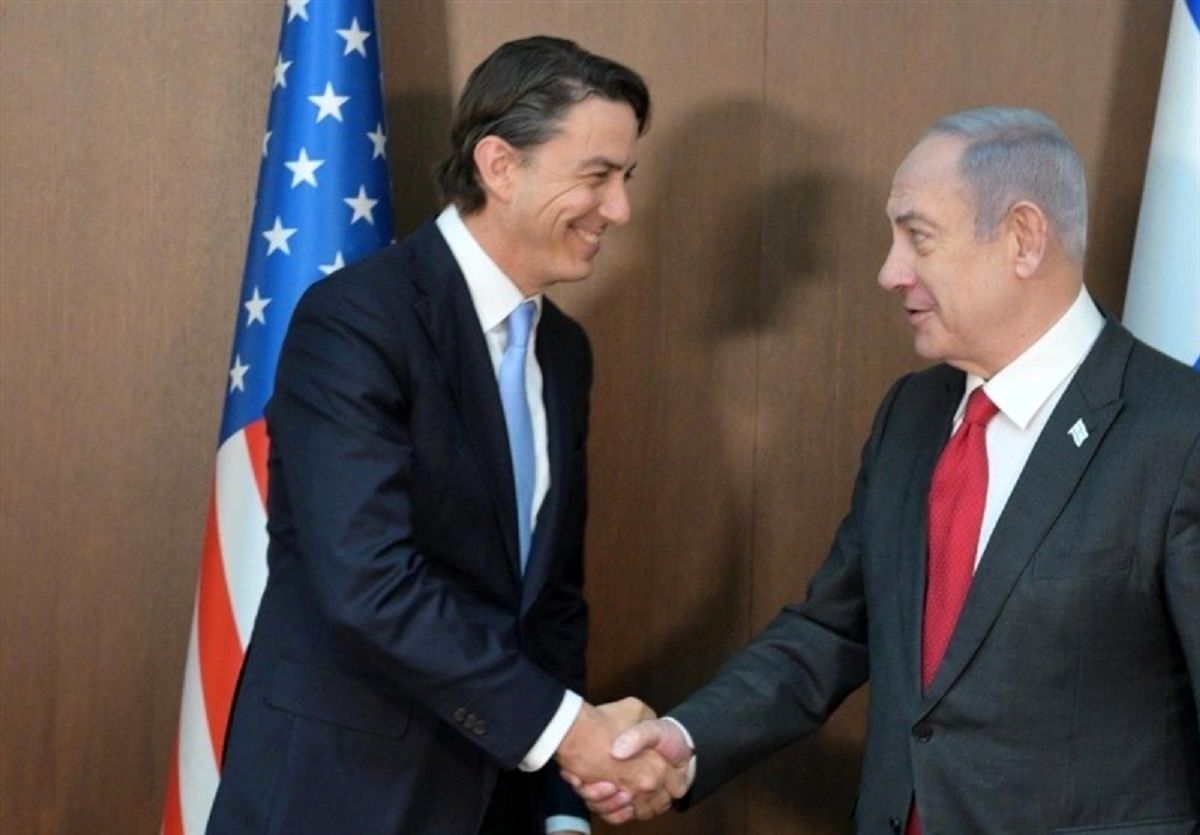Alwaght- While Israeli Prime Minister Benjamin Netanyahu had vowed he will continue the war in Lebanon until destruction of Hezbollah, a month after starting the adventure, signs of Israeli army defeat on the northern front are emerging.
Reports suggest that despite his hawkish stances, Netanyahu has recently resorted to international mediators. Citing Israeli officials, Yedioth Ahronoth newspaper reported Tuesday that the talks about stopping Lebanon war have reached advanced stages.
These Israeli officials said that now there are indirect negotiations between Lebanese and Israeli officials in order to secure a ceasefire.
According to these Israeli officials, Amos Hochstein, the special envoy of the US to Lebanon, has also reached good understandings during his recent trip to Lebanon, and he will soon travel to Lebanon and Israel in order to work out a final deal on the war in southern Lebanon.
Hezbollah's fatal blows to Israel
Though it is too early to talk about ceasefire between Israel and Hezbollah, the dire military situation the Israeli army has faced over the past month on the Lebanese front has largely contributed to blurring the prospects of a success in the anti-Hezbollah military action.
In response to the assassination of its commanders and leaders, Hezbollah has expanded the range of its operations to the occupied territories, and now there is no area from the north to the depth of Israel safe from the barrages of Hezbollah's missiles and drones.
According to reports, at least 1 million settlers spend hours in shelters every day for fear of Hezbollah missiles, and the missiles cover up to a 60-kilometer radius of the occupied territories, where more than 2 million people live in these areas.
Hezbollah has targeted many of Israel's strategic and sensitive centers in Galilee, Haifa and Tel Aviv, raising concerns of leaders of Tel Aviv. The arrival of Hezbollah missiles at the heavily guarded Mossad headquarters near Tel Aviv shows Israel's vulnerability to Hezbollah. The passage of Hezbollah missiles and drones through the defense systems of the Israeli regime was beyond the imagination of the leaders of Tel Aviv, and therefore they are looking for a way out of this situation, because they can no longer defend the security of the settlers like in the past. Resorting to the powerful American defense system known as THAAD does not make any difference since Hezbollah prepares surprises to its enemy in parallel to Israeli moves.
The Israeli invasion of Lebanon was supposed to return home the Israeli settlers displaced from the north because of Hezbollah's attacks, but now the page has turned and Hezbollah has issued statements to 25 additional settlements asking their residents to leave for their safety.
Hezbollah has dealt heavy blows to its foe in ambush operations and encounters. The number of casualties of the Israeli army is unprecedented, and according to official figures, 23 soldiers have been killed and dozens more injured in the past month. Given the tight news censorship of the Israeli army, the number of casualties is more than what is announced, and the reports of hospitals and Hebrew media confirm this claim.
Additionally, since the start of the clashes in September, Hezbollah has managed to destroy 28 Merkava tanks, 4 bulldozers, an armored vehicle, a personnel carrier, three Hermes 450 drones, and one Hermes 900 drone.
In recent weeks, Hezbollah has dealt a heavy blow to the Israelis by unveiling its new weapons, suggesting that continuation of the war on the northern front will have grave consequences for the leaders of Tel Aviv. This is while Netanyahu thought that with the assassination of the leaders of Hezbollah, security would be restored to settlements in the north, but this warmongering has delivered the reverse and insecurity has spread throughout the occupied territories, and with the influx of millions of settlers to the shelters, security has become a dream for the occupiers.
Israel's repeated failures come as this regime has used all its military tools in attacking Lebanon. In the attack on Lebanon, five army divisions including the 146th, 36th, 91st, 98th and 210th divisions are participating, which make up almost half of the military forces of this regime. Therefore, in terms of the number of troops and weapons, the Israelis have the upper hand in words, but the Lebanese resistance has changed the rules of the engagement in its favor by taking the initiative in the field and using appropriate fighting methods.
The Israeli regime's invasion of Lebanon is similar to the first days of the war in Gaza, when nearly 3,000 people were killed and thousands of others were injured by the blind bombing of civilian areas for about 1 month. Despite this volume of brutal attacks, the occupation army has not made any gains against Hezbollah, and as the Lebanese You News reported on Tuesday, the Israeli forces are not even able to maintain their limited gains on the ground and were forced to retreat from various villages and towns in Lebanon, especially Houla, Misra, Meiss El Jabal, Blida, and Al Oudaisa.
Psychological aspects of Israeli defeat from Hezbollah
The Israeli forces are largely psychologically broken as their casualties in battles rise. According to a CNN report about morale of the Israeli forces returning from battleground published last week, many of Israeli soldiers are suffering from psychological trauma, many of whom commit suicide at the end of the road.
Also, psychological impact of Hezbollah missiles that cause frequent alarms across Israeli cities and send the Israelis to shelters and disrupt their normal life is nothing less than that of the casualties on the battlefield. Hezbollah's ability to maintain this psychological pressure is critical to its overall strategy, as it can undermine public morale within the regime and indirectly put pressure on the Israeli cabinet.
In the past days, tens of thousands of settlers, especially the families of prisoners, stepped up their protests against Netanyahu's government, calling him the main cause of their miserable situation and calling for an end to Gaza and Lebanon conflicts.
Although in the first days of airstrikes on Lebanon and the assassination of Hezbollah commanders, the scale tipped somewhat in Netanyahu's favor and he was able to raise domestic public support, in recent days due to the heavy Israeli casualties in fight against the resistance forces and the missile and drones strikes deep into the occupied territories, the opposition to war once again rose its voice.
In a speech, ex-PM Ehud Olmert lashed out at Netanyahu's policies, saying that the real enemy of Israel is not Iran, Hezbollah or even Hamas, but Netanyahu and the radical Israelis like him.
"Unfortunately, we see that Netanyahu relies on radicals in his right-wing cabinet and turns a blind eye to their actions," he said.
Opposition leader and ex-PM Yair Lapid addressed Netanyahu, saying: "You are the weakest prime minister in the history of Israel. Whoever wants the credit of Nasrallah's assassination should also take responsibility for the killing of prisoners in Gaza."
Struggle for ceasefire
Meanwhile, the continuous Hezbollah attacks have forced Israeli and American leaders to ceasefire. Israeli Chief of General Staff General Herzi Halevi on Friday talked about possibility of end of Lebanon war.
Under the pretext that the army has succeeded in eliminating the chain of senior commanders of Hezbollah, Halevi announced that the conditions for the end of the battle on the northern front have been created "in the best possible way". He said: "There is a diplomatic solution, and things will eventually move towards an agreement on a political solution based on Resolution 1701."
The US Secretary of State Antony Blinken in his visit to the region last week said that there is an immediate need for reaching a diplomatic solution for Lebanon war.
"As Israel conducts operations to remove the threat to Israel and its people along the border with Lebanon, we have been very clear that this cannot lead, should not lead, to a protracted campaign,” Blinken said in Doha on his 11th trip to the region.
Blinken claimed that Washington is working on a deal that will allow civilians of both sides on the border to return home.
Officials in Tel Aviv and Washington seem to have come to the conclusion that in order to reduce casualties and restore peace to the northern regions they must end the war with Hezbollah, knowing that the continuation of the war will only increase the costs of Tel Aviv.
The conflict between the two sides is like that of 2006. At that time, too, Tel Aviv leaders considered themselves winners, but Hezbollah changed the equations in the last days of war. Actually, after the blows it dealt to Israel, including hitting the Sa'ar corvette and several Merkava tanks, Israeli leaders rushed to raise the white flag and accepted Hezbollah's conditions. History seems to be repeating itself once again and as Hezbollah ramps up its operations, Israelis find themselves with no choice but to consent to a ceasefire.



























